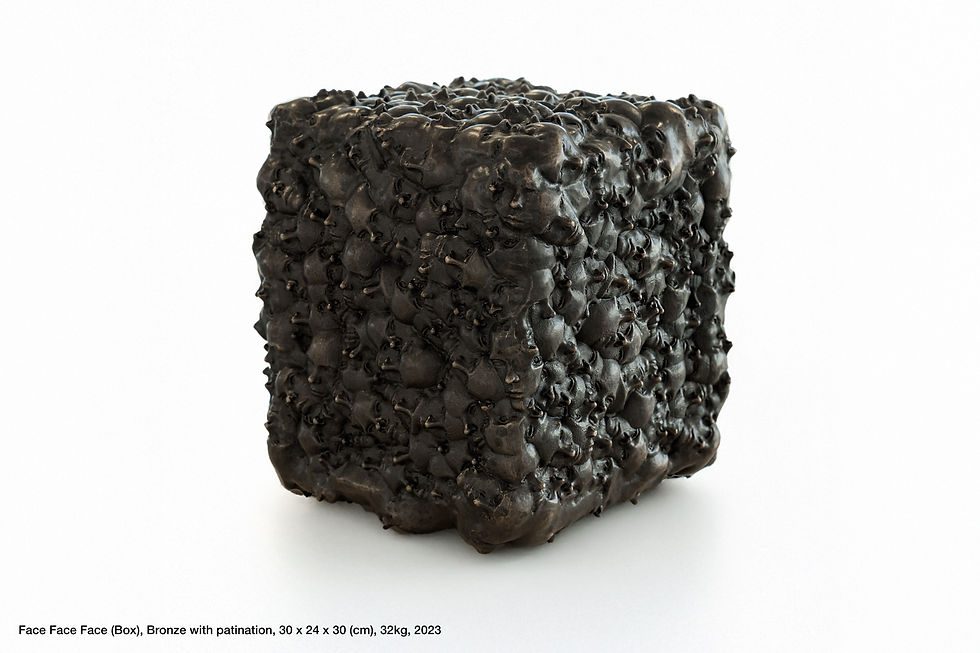Rebekah Thurston/ Sculpture & more...
- Tamar Khelashvili
- Oct 5, 2024
- 2 min read
Looking to significant female figures in my family, my practice explores my interpretations of
femininity, and how these have been influenced by my upbringing in the Valleys of South-East Wales.

One-part autobiographical, one-part social commentary, my work aims to depict the connection between people and place, combining images and objects through collage to comment on class and gender. Linking these collages with stitching and embroidery techniques, the work becomes a time-consuming and physical enquiry into the laborious nature of textiles and their production. The images are applied with playfulness to strike a sensitive balance of humour and violence, tackling politically arduous subjects, for instance- the industrialisation and subsequent downfall of industry in small communities like my own. My work interrogates how this has left a lasting mark on working-class communities, families, and more central to my practice, connotations of working-class femininity in Wales.
In my most recent body of work, Human Fabric (2024), I interrogate my notions of working-class
womanhood following a body of research surrounding the British Nylon Spinners Factory in my
hometown of Pontypool. Once the heartbeat of the town in the 1950s/1960s, the factory has long
since been abandoned, leaving behind a rich history of textiles, valleys innovation, and roles for
women on the factory floor. The industrialisation of the valleys changed not only its physical
landscape but its economic landscape, thus increasing women’s choices for work and independence.
The work explores the evolution of several generations of my family who lived their whole lives in Pontypool, each with an individual experience of the highs and lows of the Valleys economy. I
communicate these ideas through combining collaging and traditional cross-stitching techniques, applying embroidery thread I invoke the nylon thread produced at the factory, highlighting the duality of textiles being a representation of both femininity and manual labour. Using found family photographs, I deconstruct them, manipulate them, and stitch into them, as a way of trying to piece together a puzzle of my feminine, Welsh and working-class identity.




Comments